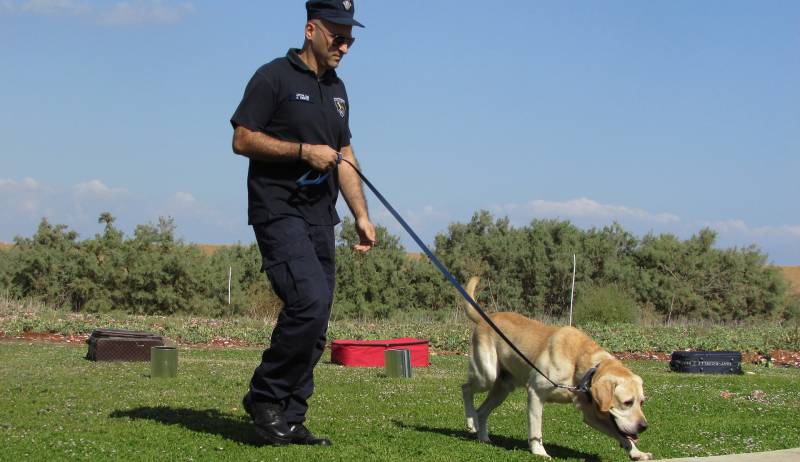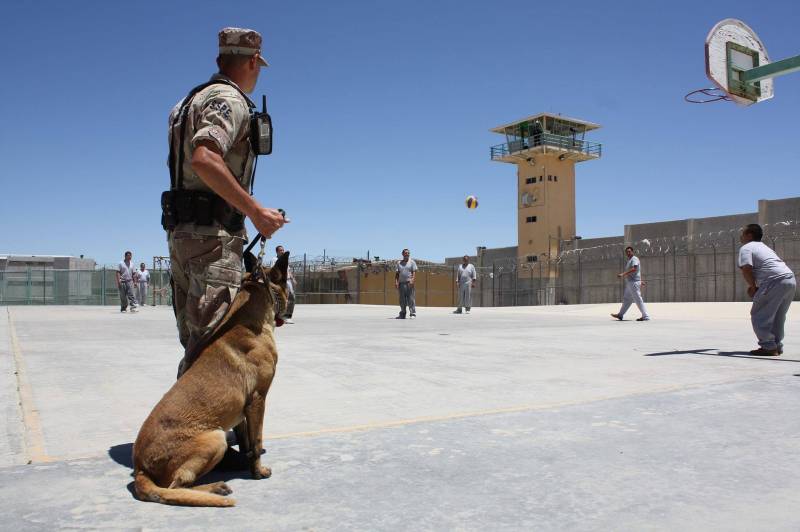Quick Navigation
A dog can become a police dog if it is fortunate enough to complete some crucial endurance and agility training!
Or simply a “K9.”
This means that they are now an employee rather than just a pet. … in a way.
What do they get from it, though?

Are police dogs paid similarly to human officers?
Not. Police dogs are not paid.
But it’s not just as simple as that.
Therefore, today we’ll discuss the duties and rewards of becoming a police dog.
What Does A Police Dog’s Job Involve?
Dogs have a keen sense of smell, are agile, and are good at tracking.
These abilities (present in police-favored hunting breeds like German Shepherds) make them excellent allies when it comes to public enforcement, search & rescue operations, and detection of drugs, explosives, and human remains.
During the patrol, police dogs remain by their officers’ sides, protecting and ensuring the community’s safety.
They are frequently seen riding around public places such as schools, malls, train stations, bus stops, ports, and airports.
Having a K9, however, has some additional, less obvious benefits.
For instance, a dog can fit into spaces that a human cannot.
This means that they are quite excellent at finding people who have gotten stuck in confined areas like ravines or traces of suspicious substances that are hidden in difficult-to-access places.
Highly skilled dogs take part in serious operations all over the world, especially during natural disasters, and can even detect decomposing bodies in certain areas.
They alert their handlers when they detect specific scents, which is dependent on their specific training.
K9s trained for detection are only trained to detect either explosives or narcotics, not both.
For someone who isn’t compensated, that’s a lot of work!
Do Police Dogs Enjoy Their Job Even If They Don’t Get Paid?
Why Being A K9 Suits A Dog’s Interests So Well
Dogs are intelligent, curious, and good at solving problems.
They will find delight in performing activities as long as they are getting proper care, being loved, and aren’t being overworked.
The majority of their jobs are simply things that dogs love doing (and have been bred) to accomplish!
Essentially, this is what they get rewarded for.
On the force, they move about more actively than typical pets do, running, chasing, sniffing, biting, and generally enjoying life.
This applies to all working dogs, not just K9s.
For instance, sheepdogs carry out many of the same tasks as K9s and are considered working dogs.
Sheepdogs track down lost or escaped sheep, alert the farmer, and assist in herding them home, just like a police dog could be entrusted with locating a missing person or stowaway.
A police dog is more versatile than a sheepdog in terms of what it can perform.
Thankfully, not all police dog is trained to perform every task.
For instance, some dogs will specialize in bomb detection.
A Respected Member Of The Team
Police dogs are treated with care and respect while on the force.
This includes (unfortunate but rare) cases in which a dog is killed.
If a police dog dies in the line of duty, they are awarded ‘the same honors as its human partner’.
Check out this fascinating document on “The Rocky Protocol” to learn more about police dog burial practices.
When a dog makes a mistake, the handler is held accountable, not the dog.
This respects the fact that, while the dog is valued, its limited reasoning capacity (compared to that of a paid human) is respected.
But what about the money?
While a dog can’t exactly do much with a salary, its handler definitely can.
Do Police Dogs Get Paid In The US?
Police dogs are relatively popular in the United States, with an estimated 50,000 K9s in service over the last decade!
However, funding for their role in the force isn’t as sufficient as you would think.
The National Police Dog Foundation estimates that covering officers’ salaries leaves less than 20% of a police department’s total budget for other expenses.
As a result, the dogs are frequently fed, trained, and purchased with the help of charitable donations.
However, this does not imply that the police dog handlers work for free!
In the United States, the average salary for police dog handlers appears to be around $45000.
Not a bad paycheck for spending time with a furry friend!

Meanwhile, the dogs get to experience the “fun” aspects of police work.
They get to spend time with their humans and solve problems without the moral conundrums of law enforcement or the paperwork stress!
They are essentially compensated with a life that is secure, enjoyable, and stimulating.
All three of these things are far more important to an animal than money.
Do Police Dogs Get Paid In The UK?
With over 2,500 police dogs “employed” in the UK, they play an important role in things like drug detection and locating missing people.
They receive compensation for their efforts as well!
Back in 2013, the Nottinghamshire Police scheme announced that retired police dogs in the area would now be eligible for canine pension plans!
Which is an excellent way to indirectly compensate an animal.
This made England the first country to officially commit to financially caring for retired police dogs. A well-deserved benefit.
The scheme provided dogs with up to £1,500 per month to cover costs such as vet bills, which is a fantastic idea.
After all, police officers receive pensions, and their dog companions are an equally important part of the force!
In addition, female police dogs receive time off from their jobs when they are expecting or nursing puppies, just like human officers do.
Some dogs may never return to the force after this.
Overall, life is pretty simple.
A Noble Career
A healthy, hardworking police dog can serve for a decade in the role.
That’s more time than most of us will spend on our first jobs! And without being paid!
Thanks to the regular exercise and challenge that the work offers, they have a good chance of living long, healthy lives.
So, do police dogs get paid? No.
They don’t, however, leave empty-handed.

Purrfect n’ Pawesome is the brainchild of Amanda, who has been into researching and writing about pets to help other pet parents in nurturing their adorable pets. Currently, she runs Purrfect n’ Pawesome along with her team of experienced and dedicated pet experts. Along with being an awesome writer and entrepreneur, Amanda is a cat mom to two innocently spoiled cats, Balanca and Scruffy.
She has been writing about pet care and nurturing and wants to share her readers’ experiences, learnings, and knowledge.
Over the years, she had the opportunity to work with various pet owners having multiple breeds, and that exposure gave her experience and the lessons of a lifetime.
Her family, her entire universe revolves around her two cats, who give her endless support and inspiration to move ahead with her objectives in life. Amanda is a live example of a balanced approach to all parenthood questions we all face in life.






